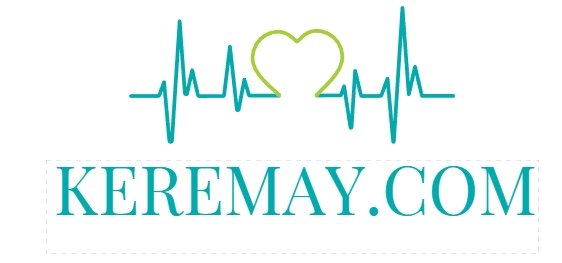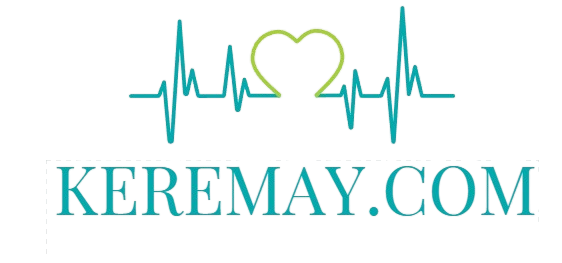The sweet and the savory: two seemingly opposite tastes, yet each is essential to a properly balanced diet. But how much of each should you be consuming? It can be a tricky question to answer, and many of us have questions about how to navigate the nuances of a balanced diet between these two ingredients. Let’s dive into the world of sugar and salt, and learn how to tackle this issue head-on.
1. The Sweet and Salty Struggle: What Should Your Diet Look Like?
Whenever it comes to diet, let’s cut through the confusion – most important thing is to maintain a balanced diet. It requires a reasonable balance between sweet and salty. Both of these intense flavours represent significant components of good nutrition. Sweet gives us energy and salt helps to maintain normal functioning of our body.
So how can you manage the sweet-salty struggle? Here are some tips:
- Get your fructose from the right sources – fruits, nuts and not from added sugars.
- Reach out for healthy salted snacks such as popcorn, topping them with healthy herbs like oregano and pumpkin seeds.
- Go low on processed foods, these usually contain large amounts of added sugar and salt.
- If you’re adding sugar to any dish, go for brown sugar or honey – these are better for your heart.
- Opt for home-made food the most – in your kitchen, you know what ingredients you are adding and in what quantities.
You’ve probably heard that salt is terrible for your blood pressure, while sugar leads to obesity. True, consuming too much of any of them will have consequences. So it’s relatively easy – try to add them in moderation. It doesn’t hurt to have a little bit of that sweet or salty snack, just remember that you don’t want to overdo it.
When comes to health and nutrition, the message that has to be heard is pretty simple – if you don’t consume too much of either one, the benefits of a balanced diet far outweigh the disadvantages of sugary or salty treats. Knowing this, you should practice control and not overindulge in sweet or salty foods.
2. Finding Balance In Nutrition: Sugar and Salt, Friends or Foes?
It’s important to find a balance between sugar and salt in our nutrition, but where do we draw the line? To answer this age old question, we’ll delve into the unique properties of sugar and salt and explore how to incorporate them into our diet.
Sugar: A Sweet Struggle
Sugar has a notorious reputation, often considered to be the root of all evil in nutrition. Too much sugar can upset our diets and contribute to health problems such as obesity, diabetes, and heart disease. That said, it doesn’t have to be all bad. Here are some tips on making sugar a friend and not a foe:
- Limit consumption of added sugars, such as white and brown sugar, syrups, sodas, etc. It’s recommended that added sugar not surpass 7–10% of your daily calorie intake.
- Opt for natural and unrefined sources of sugar, such as honey and maple syrup.
- Choose more nutrient-dense snacks, and avoid processed sugary snacks that can spike your blood glucose levels.
Salt: Not Just for Seasoning
Salt is just as essential as sugar, as our bodies use salt to balance our fluids and maintain proper nerve and muscle function. Many people avoid salt due to its link to heart disease and hypertension, but there are ways to make sure it doesn’t harm our health:
- Eat as much “unprocessed” salt as possible. Some good sources include seaweed, miso, and pink salt.
- Incorporate salt into meals by cooking with it, as this prevents you from adding more during the meal.
- Increase potassium-rich foods in your diet to help reduce blood pressure.
- Opt for seasonings such as herbs, spices, lemon, and garlic in place of added salt.
The key to maintaining good health is to understand that sugar and salt are both essential to nutrition. As long as you enjoy them with moderation and choose healthier sources, sugar and salt can become part of your balanced diet.
3. A Personalized Eating Plan: Unraveling the Tension Between Health and Enjoyment
Most of us want a healthy lifestyle, but it can be hard to discover a healthy eating plan that fits with our preferences and daily routines. It takes effort to create a meal plan that is both nutritious and enjoyable. Here are a few tips to help you unravel the tension between health and enjoyment when it comes to eating:
- Find Balanced Recipes: A balanced recipe is one that includes protein, vegetables, and complex carbohydrates. Look for recipes that are easy to make and require few ingredients. This will keep your meal plan simple and efficient.
- Work In What You Enjoy: Don’t give up foods you enjoy for the sake of a healthy diet. It’s okay to indulge in treats every now and then, just make sure to keep a healthy balance as well. Eating a wide variety of foods can make it easier to stick to your meal plan over time.
- Mix Up Your Ingredients: To avoid feeling bored of the same meals every day, experiment with different ingredients. You can also try out different combinations of foods, such as mixing together fruits, seeds, and nuts and topping them over your oatmeal.
Eating healthy doesn’t have to be a chore or bane of existence. You can create a meal plan with an ideal balance of nutritious and enjoyable foods, that works for you and your lifestyle. Make your meal plan exciting, and focus on the wealth of delicious and nutritious options you can enjoy.
Finally, don’t forget to exercise and get enough sleep to complete a healthy lifestyle strategy. Both of these are key components to good health and feeling your best.
4. Food For Thought: Exploring the Varied Benefits of Adopting a Balanced Diet
When it comes to a balanced diet, many people focus on avoiding overly unhealthy foods and the perceived advantage of that choice – a healthier body. But there is so much more to the equation. Here are some of the lesser-known but equally powerful benefits that come with eating a balanced diet:
- Improved mental health: A balanced diet rich in omega-3 fatty acids, vitamin B12 and Zinc can help lower levels of depression and anxiety.
- Improved cognitive function: Eating healthy foods like whole-grain carbohydrates and healthy fats can help enhance concentration and boost memory.
- Better physical performance: Eating foods with a balanced ratio of carbohydrates, proteins and fats can help enhance physical performance.
The best part is that all these benefits don’t come at the expense of taste. You can find tasty recipes for meals with balanced ratios of the essential components of food, so you can stay fit and healthy without giving up flavor. Creating healthy meals is easier than you think and there are plenty of resources online, from food blogs to nutritional calculators that can help you out.
In addition to the physical benefits, a balanced diet can also lead to improved emotional and spiritual wellbeing. As you eat healthier and begin to bring balance into your life, you’ll start to naturally reduce stress, increase confidence and find a sense of inner calm.
Eating a balanced diet is one of the best things you can do for yourself and your family for the long term. The wide array of healthy benefits that come from eating right make it a no-brainer decision, particularly in the current health and social climate.
We hope that this article has been enlightening in regards to the nuances of balancing sugar and salt in our diets. Remember, small adjustments can make a big difference. By understanding the importance of balancing these two ingredients, we can all take meaningful steps towards leading healthier and happier lives.



